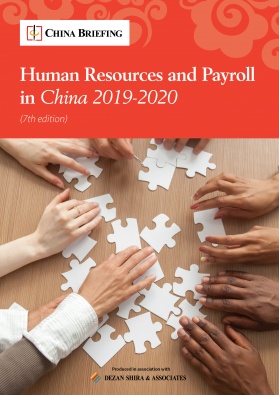China to Reduce Corporate Social Insurance Premiums, Defer Housing Provident Fund Payment
On February 18, Premier Li Keqiang presided over an executive meeting of the State Council, which made a surprise decision to reduce or exempt corporate social insurance premiums (pension, unemployment, and work injury insurance) for enterprises, and defer payments made to the housing provident fund.
The announcement bears a significant financial impact on small to medium sized businesses across the country, potentially enabling them to save anywhere between 10 to 15 percent in compensation and benefits payouts over the next several months.
The details of the two key policies introduced by this announcement are as below. More details are expected to follow, as the provincial governments are required to issue specific implementation measures and report these to the central authorities for record before March 5.
1) Reduction and exemption of corporate social insurance premiums
During the period of February to June 2020, small and medium enterprise (SMEs) in provinces, except Hubei, will be exempt from paying premiums on:
- Pension,
- Unemployment, and
- Work injury insurances.
For large companies, the payment of the above three social insurances will be halved during the period of February to April 2020.
In Hubei, all enterprises – irrespective of size – will be exempt from paying premiums on pension, unemployment, and work injury insurance during the period of February to June 2020.
Companies experiencing severe difficulties in production and operation due to the epidemic may apply for deferred payment of social insurance premiums of up to 6 months.
2) Enterprises can apply for deferred payment for housing provident funds
Enterprises can apply for deferred payment of housing provident funds – before the end of June. During this period, employees who have not been able to make contributions into their housing provident fund due to the epidemic situation will not be overdue for payments, and can apply for housing provident fund loans.
For companies in hard-hit regions, they can negotiate with employees to halt payments to the housing provident fund or adjust the contribution ratio.
Observations from our experts
The State Council meeting at which the policy was introduced emphasized an increasingly pressing priority in China’s epidemic control and prevention strategy – stabilizing the economy.
“Keeping employment stable is a pressing priority in the course of advancing epidemic control and economic and social development,” Premier Li said at the meeting.
“It is important to promptly introduce policies bolstering businesses, especially micro, small, and medium-sized enterprises. Sound development of such businesses is vital to stable employment.”
This new policy will effectively exempt or reduce all employers’ social insurance burden over the next few months on three of the five core types of social insurance (the five being – pension, medical, unemployment, work-related injury, and maternity insurances), and allow, both employers and employees to defer payments to their mandatory housing fund.
The premiums for pension, medical, unemployment insurance, and mandatory housing fund are jointly contributed to by the employer and employee, while the premiums for work-related injury and maternity insurance are solely contributed to by the employer.
However, as social insurance is managed on a regional basis, further details are needed from the respective local governments as to exactly how this central government announcement will be implemented.
One of the important aspects of this policy that will need further clarification is what businesses fall within the scope of a ‘small and medium enterprise.’
Nicole Jiang, Assistant Manager at Dezan Shira & Associates’ Human Resources Department,”as confirmed by the central authorities – businesses may refer to the Notice on Printing and Distributing the Provisions for Standardizing of SMEs (MIIT [2011] No.300).”
These criteria define SMEs according to their industry, looking at both the number of employees and operating income. The thresholds differ by industry, but range from:
- Less than 200-1000 employees; and
- Operating income of less than RMB 20 million (US$2.8 million) to 200 million (US$28 million) some have a higher threshold, dependent on the industry.
However, Jiang adds, “Provinces should base their SME criteria on MIIT [2011] No.300, taking into account other relevant provisions along with the actual situation of the local enterprise.”
For more information about how these new social insurance exemptions will apply to your business, please contact Dezan Shira & Associate’s experienced HR and Payroll team at china@dezshira.com.
(This article was originally published on February 19, 2020. It was last updated on February 21, 2020 to include the latest developments.)
Related Reading
- China’s Preferential Tax Policies to Help Businesses Overcome Coronavirus Stress
- China’s Support for Foreign Investors, Trading Companies as Coronavirus Impacts Supply Chains
- China Extends February Tax Filing Deadline to February 28
About Us
China Briefing is written and produced by Dezan Shira & Associates. The practice assists foreign investors into China and has done since 1992 through offices in Beijing, Tianjin, Dalian, Qingdao, Shanghai, Hangzhou, Ningbo, Suzhou, Guangzhou, Dongguan, Zhongshan, Shenzhen, and Hong Kong. Please contact the firm for assistance in China at china@dezshira.com.
We also maintain offices assisting foreign investors in Vietnam, Indonesia, Singapore, The Philippines, Malaysia, and Thailand in addition to our practices in India and Russia and our trade research facilities along the Belt & Road Initiative.
- Previous Article Updated: China Factory and Offices Reopening Schedules after Lunar New Year
- Next Article China’s Support for Foreign-Invested Enterprises to Cope with the COVID-19 Outbreak







